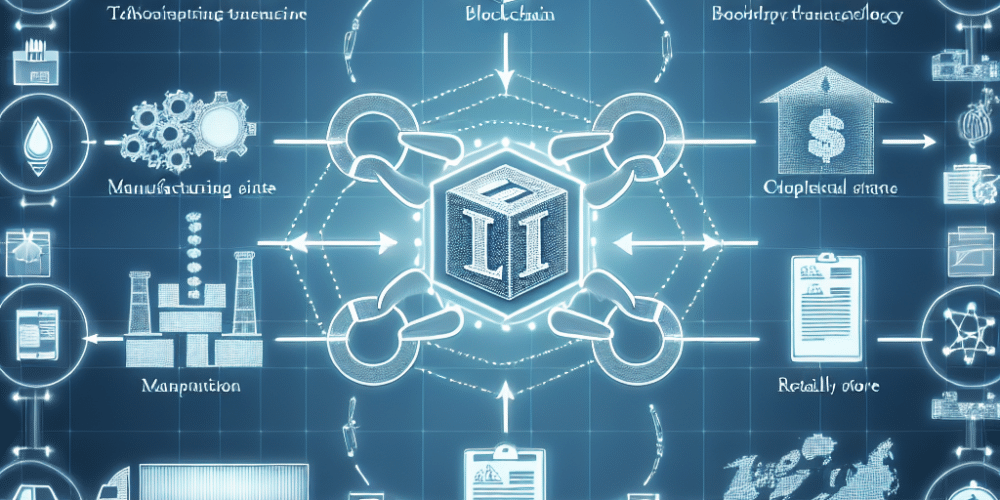In a groundbreaking development, blockchain technology is setting new standards in supply chain management, heralding a shift towards unparalleled transparency and efficiency. The latest innovation comes from a collaboration between tech giants and emerging blockchain specialists who have launched a decentralized platform specifically designed to enhance visibility and trust across global supply chains.
The newly unveiled platform, named “ChainClear,” leverages blockchain’s inherent properties of decentralization and immutability to ensure that every transaction within the supply chain is recorded securely and transparently. This advancement is particularly significant given the increasing consumer demand for greater transparency in manufacturing and distribution processes.
Revolutionizing Supply Chain Management
The launch of ChainClear marks a significant milestone in the adoption of blockchain technologies in sectors beyond finance. Traditional supply chains are often plagued by inefficiencies and a lack of transparency that can lead to delays, increased costs, and reduced trust among stakeholders. By integrating blockchain into the core of supply chain operations, ChainClear aims to tackle these issues head-on.
“ChainClear’s deployment could very well redefine how products are tracked from production to delivery,” stated Cynthia Hales, a supply chain analyst. “With real-time tracking enabled by blockchain, companies can expect not only to enhance operational efficiency but also build stronger trust with their consumers.”
Technical Edge and Consumer Benefits
The technical framework of ChainClear is built on a permissioned blockchain model, which allows only verified participants to join the network. This model is conducive to supply chain applications where security and privacy of trade secrets are paramount. Each transaction on this blockchain is encrypted and can only be accessed by parties involved in the transaction, thereby safeguarding sensitive information.
From a consumer perspective, ChainClear offers a noteworthy advantage by allowing buyers to trace the product journey back to its origins. This feature is particularly beneficial in industries such as pharmaceuticals and food and beverages, where authenticity and compliance with safety standards are crucial.
Economic Impact and Future Prospects
Economically, the implications of implementing blockchain in supply chains are vast. According to a recent study by the Tech Blockchain Consortium, blockchain deployment in supply chain management can reduce costs by up to 15% due to improved efficiencies and reduced redundancies. Furthermore, the enhanced transparency and reliability provided by blockchain can significantly decrease the losses associated with counterfeit goods and trade fraud.
Looking forward, the potential expansion of blockchain into other facets of supply chain management, such as automated compliance checks and smart contracts for payments, is highly anticipated. These innovations could further streamline operations and strengthen compliance across global markets.
Challenges and Considerations
Despite the enthusiasm surrounding ChainClear, some challenges remain. The adoption of blockchain technology on a large scale requires significant changes in existing IT systems and business processes, which can be costly and time-consuming. Moreover, there is a pressing need for regulatory frameworks that can adapt to the new technologies and provide clear guidelines for their use.
Industry experts also caution about the scalability issues associated with blockchain. As more companies join platforms like ChainClear, the system must be able to handle an increasing number of transactions without compromising on speed or security.
Conclusion
The introduction of ChainClear is a promising step towards solving some of the most persistent problems in supply chain management. By harnessing the power of blockchain, this platform not only enhances operational efficiency but also meets the modern-day consumer demands for transparency and ethical practices.
As this technology continues to evolve, it will be crucial for businesses and regulators alike to foster environments that support innovation while addressing potential hurdles in implementation. With the right approach, the fusion of blockchain and supply chain could well be the catalyst for a new era of transparent, efficient, and trustworthy global trade systems.




